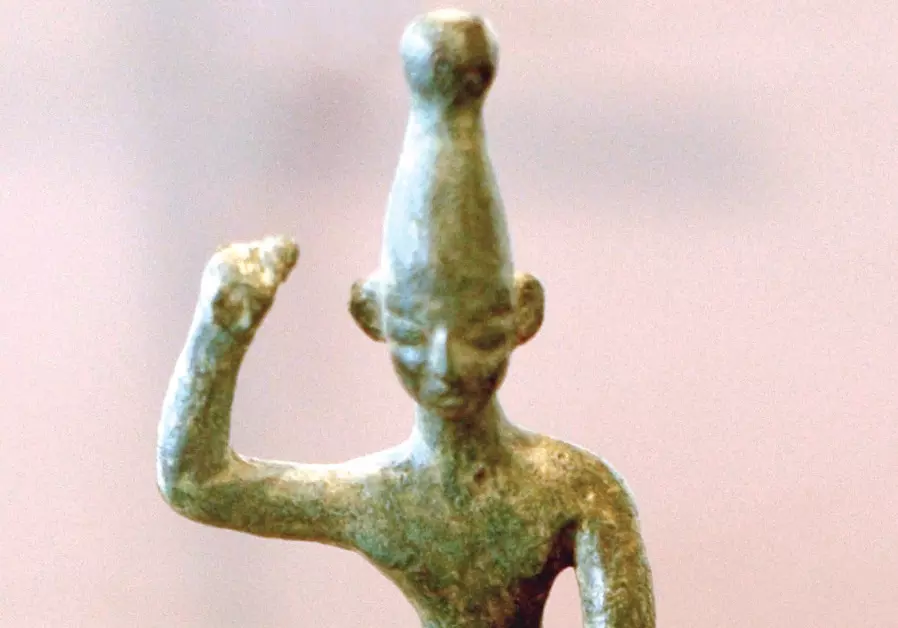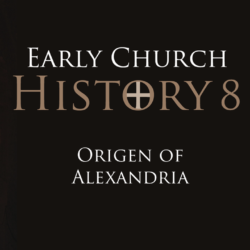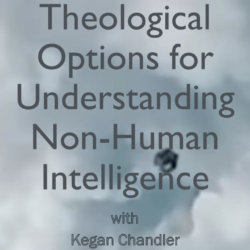
I cam across this text this morning in my daily reading. Here’s the version from the NETS:
Psalm 96.3–5
3 Declare his glory among the nations, among all the peoples his marvelous works, 4 because great is the Lord and very much praiseworthy; he is terrible to all the gods, 5 because all the gods of the nations are demons, but the Lord made the heavens.
(By the way, the NETS is the standard English translation for the Septuagint (LXX)). I was reading in the LXX and came across the word δαιμόνια (demons) and thought to myself, “Now here’s a great verse that shows the gods of the nations exist even though they are lower level spiritual beings than Yahweh.”
I was surprised to find out that every English translation I have access to translates the phrase something like “the gods of the nations are idols” except the NET (New English Translation), which rendered the word “worthless”.
I checked the Hebrew and the word is אֱלִילִים (elilim), which the HALOT (Hebrew dictionary) defines as “weak, defective, powerless, etc..” To me, there’s a world of difference between the gods of the nations being weak (especially compared to Yahweh) and them being idols. I think of an idol as a lifeless statue. Statues are impotent. They can’t do anything. However, a “weak” god can still do quite a lot. Besides, if the gods of the nations are still alive that would color how we see the actions of nations in our time as well as Paul’s statements about the cosmic powers (see Eph 6.12).
What do you think?








לִ אֱ , Jb 134 ללִ אֱ , Jr 1414K אלול: I אלל, BL 470n; MHb.2
JArm.g
idol; ? Ug. ill destruction (UTGl. 184; Driver Myths 136a; Gray Legacy 502); Syr.
˒allīl weak, MdD 19a אלאלתא weakness, Sam. defective (Cowley Sam.
Lit. 745:19; 782:2 from bottom, defective !): Arb. ˒alīl robbed, ˒alāl
,vain ,insignificant . ֱא ִלי ִל(י)ם, ֱא ִלי ֵלי: —1 :powerless ulālu .Akk ,useless
the bee among the birds Sir 113 (Var.c קטנה small); א׳ֱ איֵ פְ רֹ
worthless physicians Jb 134 א׳ֱ סםֶ קֶ futile divination Jr 1414, the
pagan gods are א׳ֱ Ps 965 1C 1626; —2. the pagan gods, always
derogatory as nonentities, idols: Lv 194 261 Is 28.18.20 1010 (cj.
Ezk (?); —3019 Sir 977 Ps 218 Hab ָה ֵא ֶלה)11. 191.3 317 .alt , ָה ֱא ִלי ִלים
GK; .gen 260: Otzen (:: ָֽה ֱא ִוי ִלי 1117 Zech and ֵאי ִלים .rd 3013
§128w). †
The Hebrew and Aramaic Lexicon of the Old Testament BY LUDWIG KOEHLER AND WALTER BAUMGARTNER
Looking at the whole entry, the key is that elil is impotent, lacking any power, useless. It is NOT ONLY compared to YHVH. The dictionary also observes it refers to “nonentities”.
Hi Sean. Intriguing find. To add to this, in 1 Cor 10:19-20, we see a connection with idols and demons, in that when pagans offered food to idols, Paul made the point that it’s not the idols they made sacrifices to, but to demons (Gk-daimonion) and not to God. It certainly then makes biblical sense that the gods of the nations are ultimately daimonia. Although what the worshippers were gazing at may have indeed been graven images, the recipients of those adorations were those who stand in opposition to Yahweh, the ones to whom you made reference from Eph. 6:12, that we wrestle “…against the spiritual forces of evil in the heavenly places”. The “graven images” in our culture are no longer stone idols, but secular idealism in its multiple forms are the gods of the nations today, or as it is succinctly put also in Ephesians “….following the course of this world, following the prince of the power of the air, the spirit that is now at work in the sons of disobedience” (Eph 2:2). Satan is perpetually distracting attention away from the true God, and he has all the kingdoms of the world at his disposal (Luke 4:5, 6) to accomplish this agenda. Until our lord Jesus returns to establish God’s kingdom, this is our reality. But as we each continue in faith now, our focus can be on our heavenly citizenship (Phil 3:20) and conduct ourselves in accordance with that holy community.
Great insight, Sean! I am not sure if you are already aware of the Divine Council Worldview (as presented by Michael Heiser here: https://www.youtube.com/watch?v=BLb5-Ktc4cs).
Given the Deuteronomy 32 worldview, an erring angelic power can be called a demon. Below are some relevant sources in this discussion (more specifically, Psalm 82):
[Psalm 96:5 interlinear reference: https://studybible.info/interlinear/Psalms%2096%5D
[Psalm 82:1 interlinear reference: https://studybible.info/interlinear/Psalms%2082%5D
[Dead Sea Scrolls English Translation of Psalms: http://dssenglishbible.com/ScrollsPsalms.htm%5D
I’ve also checked the English translation of the Dead Sea Scrolls, and unfortunately, Psalm 96:5 isn’t there.
Thus, based on the evidence available, it may well be that the gods of the nations = erring angelic powers = demons (via Deuteronomy 32 worldview, Psalm 82:1, and the Septuagint version of Psalm 96:5, respectively)
Much of Christendom wants the “gods” to be nothing more than the images that depict them. As “idols” they also assume they mean the little dolls or תְּרָפִים teraphiym (as used in many places in the Hebrew Scriptures). I note that even אֱלִילִים is lexically determined as “nonentities”, which translation leans theologically thereby to “they don’t exist”. A thorough study of how the LXX interprets the Hebrew in the places where δαιμόνια comes through and further study of “worthless” are in order I think before conclusions can be made. It is obvious that there are “other gods” and that they can be worshipped (Exodus 20: 3). And they are not necessarily boxed into the set of beings who are all worthless or defective. That’s a lot to put on one Hebrew word and a lexicographer’s interpretation/ explanation of it.
We know God gave “the nations” to his sons (Deuteronomy 32: 8; read this with the DSS (Dead Sea Scrolls) and the LXX) at Babel. He created Israel for Himself. Those under-gods (if you will) show up all over the place in Scripture (“kings of the earth”, “judges of the earth”, “principalities and powers”, “dominions”, “mights”, “thrones”, etc.) and are not weak and beggarly at all. Christians themselves are said to be showing off God’s wisdom to those who remain in the heavenlies (Ephesians 3:10); and we wrestle with them too (Ephesians 6:12 – those “universal lords of this darkness” (DBY)).
Very interesting take. Understanding that the nations of the world are lead by a type of subordinate “god” would make sense biblically, and explain some of the evils of the world. Thanks for sharing.
There is another contrast of demons with the Creator at the end of Rev. 9 and a few verses into Rev. 10. The whole world at the time of the end will be worshipping demons without really being aware of it (since it says the won’t stop even after massive plagues). One of the teachings of demons at the end is advocation of abstaining from typical food God has ordained. That is happening on a global scale right now. It and other policies and teachings will kill hundreds of millions of humans in the immediate future if not repented of.
This is a very confusing topic to me. My specific confusion is the notion that GOD ” alloted” other gods- other spirit brings to specific nations. The language seems to teach that GOD matched up evil anti GOD spirit brings with very specific spirit beings. Would GOD do that? Actually facilitate evil and the spiritual death of millions then judge all of these people
He caused? OR does the idea of allotment mean that He simply abandoned them to their own devices and values where allowed to invent their own gods which in reality were no gods at all just speculations , inventions of the their own imagination as Paul explains in Rom
1 and as he taught the Athenians in Ax 17. This is the model that seems most consistent to me. The only thing that does not fit this model is the existence of the Prince of Persia who is presented as a real spirit being and not invented by man. Any thoughts?
Those “demons” actually manifest and demand worship from people and demand idols or even temples be built for them. And some of them have actually admitted themselves to be “fallen angels”.
The “gods of the Gentiles are demons” is an accurate translation. The gods of the Gentiles are in fact demons.
There are several instances when this has been evidenced throughout history as recorded in the Scriptures. Starting with Moses when he confronted Pharaoh, read Exodus 7:8-13, the magicians and the sorcerers of the Pharaoh of Egypt also reproduced the miracles that God had done by the hand of Moses. The very first miracle of the staff of Aaron turning to a serpent was replicated by the sorcerers and enchanters of Egypt. The sorcerers, enchanters and the magicians of Egypt are invoking the gods behind their idols who had this creative but limited power.
The idols in themselves have no power in them. After all they are made of wood, stone or precious metal. Isaiah 40:18-20. However when men prostrate themselves before such idols, the spirits, whom the Scriptures call “sons of God” in Psalm 82:6, do by some unknown means, become recipients of that worship.